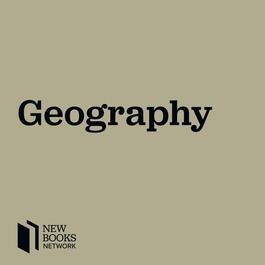
New Books in Geography
This podcast is a channel on the New Books Network. The New Books Network is an academic audio library dedicated to public education. In each episode you will hear scholars discuss their recently published research with another expert in their field. Discover our 150+ channels and browse our 28,000+ episodes on our website: newbooksnetwork.com Subscribe to our free weekly Substack newsletter to get informative, engaging content straight to your inbox: https://newbooksnetwork.substack.com/ Follow us on Instagram and Bluesky to learn about more our latest interviews: @newbooksnetwork Support our show by becoming a premium member! https://newbooksnetwork.supportingcast.fm/geography
Show episodes
In Breathing Aesthetics (Duke University Press (2022), Jean-Thomas Tremblay argues that difficult breathing indexes the uneven distribution of risk in a contemporary era marked by the increasing contamination, weaponization, and monetization of air. Tremblay shows how biopolitical and necropolitical forces tied to the
At the heart of University College London lies a long-forgotten map library packed with thousands of maps and atlases. Professor James Cheshire stumbled upon it, and spent three years sifting through hundreds of dusty drawers to see what was there. He was stunned to uncover some of the most significant maps and atlases
Plastic is ubiquitous. It is in the Arctic, in the depths of the Mariana Trench, and in the high mountaintops of the Pyrenees. It is in the air we breathe and the water we drink. Nanoplastics penetrate our cell walls. Plastic is not just any material—it is emblematic of life in the twentieth and twenty-first centuries.
Antarcticness: Inspirations and Imaginaries (UCL Press, 2022) edited by Ilan Kelman Antarcticness joins disciplines, communication approaches, and ideas to explore meanings and depictions of Antarctica. Personal and professional words in poetry and prose, plus images, present and represent Antarctica, as presumed and a

Ihnji Jon, "Cities in the Anthropocene: New Ecology and Urban Politics" (Pluto Press, 2021)
Climate change is real, and extreme weather events are its physical manifestations. These extreme events affect how we live and work in cities, and subsequently the way we design, plan, and govern them. Taking action 'for the environment' is not only a moral imperative; instead, it is activated by our everyday experien

Birgit Abels and Patrick Eisenlohr, "Atmospheric Knowledge: Environmentality, Latency, and Sonic Multimodality" (U California Press, 2025)
How do we know through atmospheres? How can being affected by an atmosphere give rise to knowledge? What role does somatic, nonverbal knowledge play in how we belong to places? Atmospheric Knowledge takes up these questions through detailed analyses of practices that generate atmospheres and in which knowledge emerges
